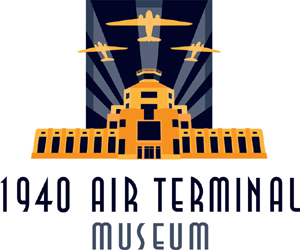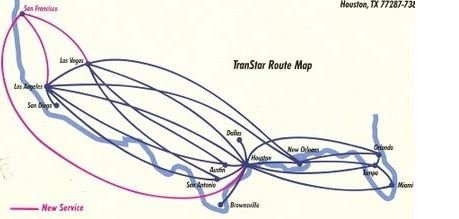The Rise and Fall of Muse Air and Transtar Airlines
In the early 1980s, the airline industry was undergoing major changes due to deregulation. Many new companies were taking off, hoping to challenge the established carriers.
Lamar Muse,
Muse Airline Founder
One of those was Muse Air, founded in 1981 by Lamar Muse, a veteran of the industry who had previously worked for Southwest Airlines.
An Early Muse Air Route Map, 1982.
After being ousted from Southwest, Muse started his own airline to compete head-to-head with them on the busy Dallas-Houston route.
Muse Air Marketing Poster advertising No Smoking.
Muse Air had some innovative ideas, like banning smoking early on and providing leather seats and complimentary copies of the Wall Street Journal. They marketed themselves as a refined "anti-Southwest" with sophisticated flight attendants. However, the company struggled financially even with lower labor costs.
Muse Air Marketing Poster advertising an image of beauty of their flight attendants.
In an ironic turn, Southwest Airlines acquired Muse Air in 1985 and re-branded it as Transtar Airlines. While Transtar expanded to serve 14 cities at its peak, the losses continued to mount. Despite efforts to change the route map and company image, Transtar ceased operations just two years later in 1987.
Poster of Muse Air's name change to TranStar.
The story of Muse Air and Transtar illustrates the difficulties smaller startups faced in competing with major airlines during the early deregulation era. While they brought creative concepts to the industry, ultimately they could not overcome the scale and established position of Southwest. Their innovations planted seeds for future airlines, but Muse and Transtar themselves never found a profitable formula. Though short-lived, they left their mark on aviation history with their spirited effort to take on a giant.
The Final TranStar Route Map, 1987







